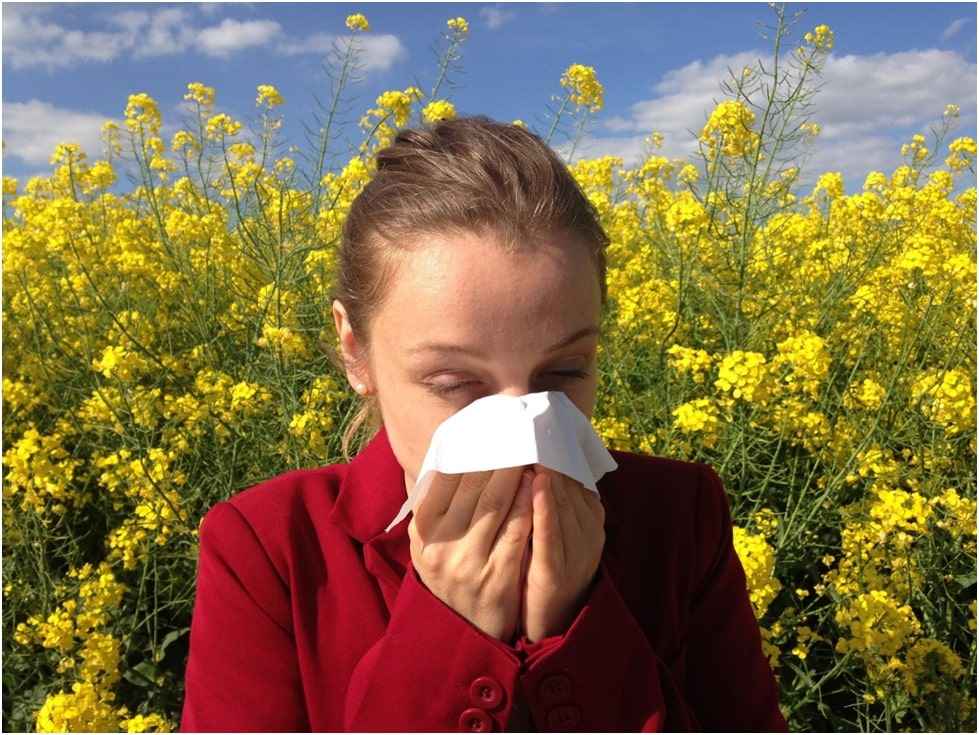Allergy Treatments: Do you suffer from any type of allergy? The sneezing, running nose, watery eyes, and other symptoms that come along with allergies can be disruptive. Nothing is upsetting if they get triggered by something you eat.
They also leave long-lasting symptoms that carry on in the form of hay fever and asthma. Finding and using allergy treatments, both in your environment and as treatments for you, is a great resource.
This ensures that you suffer as little as possible from your allergies. Here’s a guide to everything you need to know about allergy treatments.
What Is an Allergy?
An allergy is an overreaction of the immune system to a harmless substance. When this happens, the body releases chemicals, such as histamine. This can cause symptoms like sneezing, itching, and a runny nose.
There are many different types of allergies. It includes food allergies, pet allergies, dust allergies, and pollen allergies. Allergies can be minor annoyances, or they can be life-threatening.
The good news is that there are treatments available for both mild and severe allergies. If you think you might have an allergy, it’s important to see a doctor. So you can get a proper diagnosis and find the right treatment option.
Different Causes of Allergy and Their Treatments
The various causes of allergies and details of the range of treatments available. This ranges from lifestyle changes to medications and natural remedies.
A detailed overview of the symptoms of each type of allergy is also provided below. It enables you to identify their specific allergies. Also, create an individualized plan of treatment.
Inhaling Pollen
There is a range of treatments available for individuals struggling with allergies. This includes those caused by inhaling pollen. Antihistamines are the go-to prevention for seasonal allergies. It’s acquired through dedicated nasal sprays.
Other treatments include nasal steroids to provide relief from nasal congestion. And decongestants for those concerned about blocked sinuses. Immunotherapy, such as allergy shots, is another option.
Pet Dander Dust
Using air filtration systems, such as HEPA filters, can help reduce the amount of pet dander dust in the air. This helps make you feel better.
Home remedies include regular vacuuming and dusting. It may also help reduce the amount of pet dander dust. Additionally, allergy medications, such as antihistamines, can ease allergy symptoms.
Molds
Molds are an important source of allergies. Sufferers reduce exposure as much as possible. You can do this by controlling moisture and humidity in buildings and on fabrics.
Good indoor ventilation is also key to preventing mold growth in the home. You also need to identify and avoid familiar allergen sources. These are specific plants and flowers.
Certain Food
You will need to identify food allergies. This provides relief from the symptoms and even develops a treatment plan if needed. You also have to prevent food allergies. And suggest avoiding foods that may trigger symptoms.
Follow tips on how to find out which foods contain known allergenic ingredients. So people can enjoy safe, enjoyable meals.
The Symptoms of an Allergy
Some people with allergies only experience mild symptoms. Others may have more severe reactions that can be life-threatening. If you have a severe reaction, you should seek medical attention immediately.
If you have allergies, you may experience a range of symptoms. These can include:
- Itchy eyes
- A runny nose
- Sneezing
- A rash or hives
- Swelling of the lips, tongue, or throat
- Difficulty breathing or wheezing
Different Types of Allergies and How They Affect You
There are many different types of allergies, and each can cause other symptoms. Depending on the severity of your allergy, you may experience anything from a runny nose. Also, itchy eyes, difficulty breathing, and a dangerous drop in blood pressure.
Some people are even allergic to specific types of food or medication. The most common allergies get triggered by dust, pollen, pet dander, and certain foods. Below are the distinct characteristics of each allergy.
Pet Allergies
Pet allergies can vary from person to person. But, oftentimes, the most common symptom is a sneezing fit. Treating pet allergies in humans includes a combination of lifestyle changes and medication.
When introducing a new pet, it is important to keep in mind that every animal is an individual. An allergic reaction to one animal does not guarantee an allergic reaction to another.
A person with a pet allergy should keep their pet out of their bedroom and vacuum and air out their living spaces.
To further reduce allergens, it is also beneficial to give pets a regular bath and groom. Do it in an area that is easy to clean and ventilate. Allergy medications like antihistamines, decongestants, and nasal sprays can also provide some relief.
Dust Allergies
Dust allergies are common. Allergy sufferers should take care to keep their homes free of dust. Dusting surfaces, vacuuming carpets and furniture, and washing linens and curtains in hot water can all help reduce the amount of dust in your environment.
For those who suffer from allergies, air filters and air purifiers may also be necessary to mitigate dust. If these treatments don’t work, pharmacological treatments may be necessary.
Antihistamines, decongestants, and even injectable immunotherapies like allergy shots may provide relief. Some patients are having difficulty controlling their dust allergies. They should visit a doctor to discuss extra treatment protocols.
Pollen Allergies
Pollen allergies can be a nuisance and sometimes interfere with daily life, but they don’t have to keep you out of the action. Providing detailed information and helpful advice from certified health professionals helps.
From lifestyle changes to dietary modifications and determining when an over-the-counter medication is best. You need to find the solution that best suits your individual needs and works in the long run.
Food Allergies
Allergies can get triggered by certain types of food. It also causes a variety of reactions. This ranges from minor discomfort to life-threatening anaphylaxis. Individuals should understand what food allergies are and how to treat them.
Treatment options range from avoiding the allergen altogether. This is to desensitization and natural remedies. For many, removing the allergen is essential, as it is not safe to ingest the food.
Desensitization through exposure and sublingual immunotherapy (under-the-tongue medication) may be an option. Natural treatments such as homeopathy, acupuncture, and herbs may also play a role. It alleviates the symptoms of food allergies.
Medicine for Allergy Treatments
You have to research the potential risks of using the medicine. Also, any available alternatives. Follow any guidelines for the future prevention of a medicine allergy.
Seek the advice of your doctor or an allergy specialist before taking any medication. This is to identify potential triggers and assess the best treatment course.
If you think you may have an allergy, see your doctor for testing. Once your allergy gets diagnosed, there are many treatment options available. This will help relieve your symptoms.
The Diagnosis Process
If you think you or your child may have allergies, the first step is to see a doctor for a diagnosis. The doctor will ask about your symptoms and medical history. They may also do a physical exam.
To find out what’s causing your symptoms, the doctor may do one or more of the following:
Skin Test for Allergy Treatments
A skin test is an allergy treatment used to determine allergens that provoke an allergic reaction. This type of allergy test involves the injection of tiny amounts of allergens. This is such as grass pollens, foods, drugs, or mold into the skin.
With this test, the amount of allergen injected is so small that it does not contain enough substance to trigger an allergic reaction.
Skin prick tests and intradermal tests are the two types of skin tests most recommended by allergists. If you’re allergic to the substance, you’ll develop a raised bump or hive.
Blood Test for Allergy Treatments
A blood test (RAST testing) is an accurate and reliable method of testing for many other food allergies. It involves collecting a blood sample which is then analyzed to look for IgE antibodies that could be causing an allergic reaction to certain foods.
By identifying specific IgE antibodies, the healthcare practitioner can determine the likelihood of a food allergy taking place. In addition, the blood test can differentiate other conditions that could be mistaken for an allergy.
While not always 100% accurate, a blood test can help identify allergies and intolerances, which can then be treated accordingly.
Elimination Diet
Where you avoid eating certain foods for some time and then reintroduce them one at a time to see if any cause symptoms.
Once the doctor has diagnosed your allergies, they will work with you to develop a treatment plan. This may include avoiding triggers, taking medication, and getting allergy shots (immunotherapy).
How to Deal with Your Allergy and Get Treatments?
There are several different ways that you can deal with your allergies, depending on the severity of your symptoms. If you have mild allergies, you may be able to manage your symptoms with over-the-counter medications. If your allergies are more severe, you may need to see an allergist for prescription medication.
Furthermore, If you have seasonal allergies, you can take steps to avoid triggers, such as pollen and dust. Stay indoors when pollen counts are high. Keep windows closed and use air conditioning in your home and car. shower and change clothes after being outdoors. Avoid activities that will increase your exposure to allergens, such as gardening or mowing the lawn.
If you have pet allergies, try to keep pets out of your bedroom and off upholstered furniture. Vacuum regularly and use a HEPA filter in your vacuum cleaner and air purifier. You may also consider allergy shots if other measures don’t help relieve your symptoms.
If you have food allergies, it’s important to read food labels carefully and avoid foods that contain your allergens. Wash hands thoroughly after eating and before preparing food. And carry emergency medication with you in case of accidental exposure.
Other Factors That Trigger Allergies
It’s important to become aware of other factors that can trigger allergies, such as environmental allergens, but also allergens found in food, smoke, dust mites, animal fur, mold, and insect stings.
Allergies can be triggered by certain medications and even stress. The guide can provide insight into triggers that one may be more susceptible to and help guide them in the right direction toward suitable treatments.
For example, avoidance of specific allergens, as well as medication and lifestyle changes, may be recommended to help reduce symptoms.
Allergies can also be triggered by changes in weather, lifestyle choices, and bacterial or viral infections. Recognizing the cause of an allergy is the first step to proper diagnosis and treatment.
You will need to identify the following to cope:
- Proper medication management
- Avoidance of allergen triggers
- Dietary and lifestyle changes
- Alternative therapies
Allergy Treatments serve as a comprehensive resource for individuals of all ages and medical backgrounds who suffer from allergies.
Different treatment paths that can be followed provide recommendations for preventive measures to help manage allergic symptoms. Doctors also provide information about the potential risks of allergies, like hearing loss.
Visit https://www.innocaption.com/recentnews/can-allergies-cause-hearing-loss-innocaption to know more about how it affects your hearing.
They also provide benefits of therapies such as antihistamines, immunotherapy, corticosteroids, and changes in lifestyle and diet.
Learn the Different Allergy Treatments Starting Today
Allergy treatments, while often necessary and beneficial, can sometimes come with side effects. It is important to research and speak with your healthcare provider to ensure the chosen treatment is right for you.
This guide to allergy treatments provides the key information to ensure safe and successful treatment. So, don’t wait. Follow the guide to take control of your allergy symptoms and enjoy life to the fullest starting today!
Did you find this article helpful? Check out the rest of our blogs!

